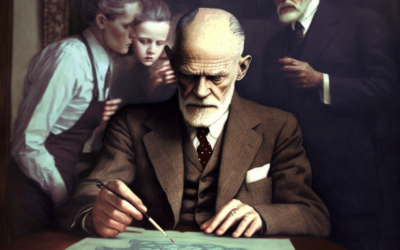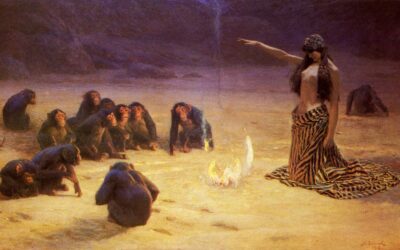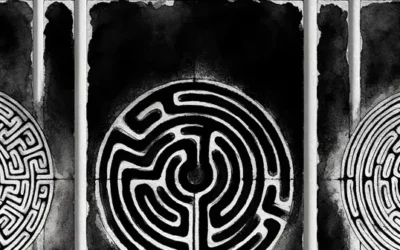What Does the Witch Represent in Psychology? As the nights grow longer and Halloween draws near, our thoughts turn to the spooky, the mystical, and the uncanny. This is the time of year when we confront the shadows - both literal and psychological. One of the most potent and pervasive archetypal images associated with this season is the witch. Reviled and revered, persecuted and empowered, the witch has haunted the human psyche for centuries. But who is the witch, really? Is she merely a Halloween caricature - a...
When Evidence Based Practice Goes Wrong
Balancing Evidence and Experience: Lessons from the STAR*D Scandal The Tightrope of Objective and Subjective in Psychotherapy For decades, psychotherapy has walked a tightrope between the worlds of scientific research and clinical practice. On one side, a growing emphasis on evidence-based models promises therapeutic approaches grounded in objective data. On the other, skilled clinicians rely on hard-earned wisdom, theoretical savvy, and a nuanced reading of each client's unique needs. Binding these worlds...
Therapy and Morality:
Examining the Implied Assumptions in Different Therapy Modalities When we think of therapy, we often associate it with self-improvement and positive change. After all, isn't the goal of therapy to help us become better versions of ourselves? But does therapy inherently make us more moral? The answer may not be so straightforward. In fact, different therapy approaches make various assumptions about morality and what it means to have a healthy sense of self. What is Morality? Before diving into how therapy...
Graham Harvey’s Relevance to Modern Depth Psychology
Who is Dr. Graham Harvey? Breaking from Early Theorists British scholar Graham Harvey, a prominent voice in religious studies since the 1990s, has played a key role in updating the anthropology of religion for the 21st century. His work breaks from the mold of early luminaries like E.B. Tylor, James Frazer, and Mircea Eliade, who tended to view indigenous and pagan religions through a lens of "primitive" superstition and irrationality. Tylor and Frazer, writing in the late 19th century, largely saw animistic and...
James George Frazer: Pioneering Insights into Myth, Religion, and the Psyche
Who was James George Frazer? James George Frazer (1854-1941) was a groundbreaking Scottish anthropologist, folklorist, and classical scholar whose work laid the foundations for modern anthropology, psychology, and comparative religious studies. Best known for his monumental study of myth and religion, The Golden Bough, Frazer pioneered the comparative method in anthropology, seeking to unveil universal patterns and evolutionary sequences in human beliefs and practices across cultures. His ideas not only shaped...
Trauma, Ritual, and Animism: Integrating the Preconscious Mind
Moreover, the new animism also sheds light on the intimate connection between trauma and intuition in the human brain. Both of these experiences are deeply rooted in the paleomammalian complex and the limbic system, which are associated with emotional processing, memory, and unconscious cognition (MacLean, 1990). This suggests that the capacity for intuitive understanding and the vulnerability to traumatic stress are two sides of the same coin, and that they both reflect the fundamental importance of the unconscious mind in human experience.
Synthesizing Post-Freudian and Post-Jungian Perspectives on Trauma and the Psyche
How do Jungians and Freudians Conceptualize Trauama Differently? The understanding of trauma and its impact on the human psyche has been a central concern for depth psychology since its inception. However, the two pioneering schools of thought in this field, Sigmund Freud's psychoanalysis and Carl Jung's analytical psychology, developed divergent frameworks for conceptualizing the nature and impact of traumatic experiences. Freud's model of the psyche emphasized the central role of instinctual drives,...
Frequently Asked Questions About Brainspotting Therapy
F.A.Q. about Brainspotting What is Brainspotting? Brainspotting is an innovative psychotherapy approach that uses specific eye positions to access unprocessed trauma in the subcortical brain (Grand, 2013). It was developed by Dr. David Grand in 2003 as an offshoot of EMDR therapy. How does Brainspotting work? Brainspotting works by using focused eye positions to access survival-based subcortical parts of the brain like the amygdala that are often inaccessible through talk therapy alone (Grand, 2013). The...
SEO for Therapists: How Therapists Can Rank Better on Google
How to Optimize Your Therapy Website for Google As a therapist in private practice, attracting new clients is essential for growing your business. With more and more people searching for mental health services online, having a strong digital presence is crucial. However, simply having a website isn't enough. To get in front of potential clients, you need to optimize your site for search engines like Google. This is where Search Engine Optimization (SEO) comes in. SEO is the process of improving your website's...
Neurological Basis of Intuition, Attachment, and Trauma
Reckoning with the Spiritual and Mystical in Neurology The Polyvagal Theory and Attachment Stephen Porges' Polyvagal Theory has revolutionized our understanding of the autonomic nervous system's role in regulating emotional states and social engagement (Porges, 2011). According to this theory, the autonomic nervous system plays a crucial role in shaping our emotional experiences and attachment styles. In secure attachment, where caregivers are attuned and responsive, the ventral vagal complex promotes feelings of...










